Youth Soccer Training in Germany
European has dominated youth soccer player development forever and Germany rank as one of the best countries for producing well-trained players. This Fall, a new youth soccer training program in Germany launches — just for talented 2004s who want to live the dream of being immersed in a total soccer culture.
For more information, read FORTUNA DUSSELDORF TO SCOUT AMERICAN YOUTHS AT THE TALENT PROJECT — A chat with Robert Palikuca, first team Manager of Fortuna Düsseldorf.
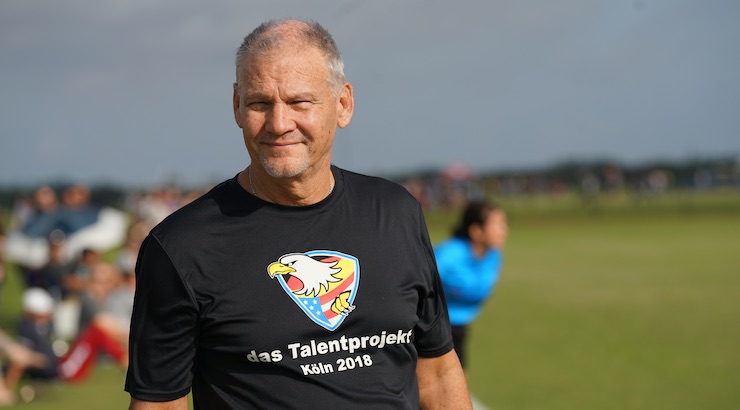
Mark Dillon is a well-known man in the world of American soccer. The Father of Orlando Soccer — as he has been called by the media and soccer aficionados alike is launching a new program to meet the needs of young soccer players who want to live the dream of training and studying in Germany. Dillon is working with Germany ’s pro soccer club Fortuna Düsseldorf.
Brilliantly conceived, The Talentprojekt, which is a real talent project, simultaneously meets the needs of the Bundesliga German soccer pro club, Fortuna Düsseldorf.
The pro club wants to scout American youths and youths want to train in Germany
The Talentprojekt kicks off in August 2019 with a squad of 2004s elite American boys who will attend school and train in a full German immersion player development program.
For the real details on this program and its legitimacy, we thought we would interview the founder of the Talentprojekt and ask all the questions we know you want the answers to.
SoccerToday Interview with Mark Dillon on The Talentprojekt
Diane Scavuzzo: Why do you believe it’s important to bring youth soccer players to train in Germany?
Mark Dillon: For American youth soccer players, Germany is a great country to train in.
From a systemic standpoint, the German youth development program is the best in the world.
When we talk about the comparison of not just the Bundesliga protocols but second, third, fourth and fifth levels of soccer in Germany, it’s a standardized pathway and the coaches are all extremely well educated.
Germany is the only country in Europe that guarantees a visa for Americans if they’re offered a contract — this doesn’t exist in any other country. For example, in the Netherlands, Belgium, the UK, Spain, France, among others, even if a player is good enough to earn a contract offer, he then has to hassle with the visa issue.
In Germany, if you get right in, you get the visa, and you get to work.
Germany I also believe there’s an easier transition into the German football system. Most people in Germany speak English.
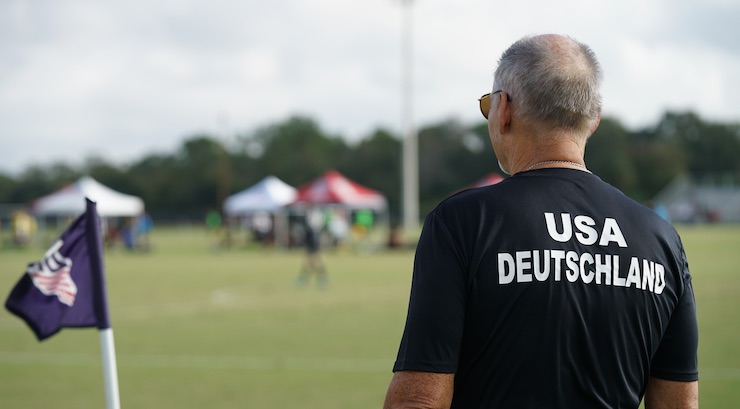
Diane Scavuzzo: You’ve been called the Father of Orlando soccer and are a leader in the soccer community. Have you always been involved in youth soccer as well?
Mark Dillon: When I launched my first professional team in 1985, I had five players who were 16 years old on the team, and people thought I was crazy. But they went on, they played well, they grew up quickly.
What I wanted was better players, and if you want a better product on the field, you have to start younger.
Youth player development is a serious business, and I think it’s not really taken that way in the United States — until maybe the last four or five years.
The real ultimate objective to change the paradigm and change the mindset.
When American youth soccer players get into the German soccer system, they realize that there is a gap between what they experience on a daily basis in the United States and what they potentially would experience in an accelerated environment.
This is the first thing you want players to become aware of, and this makes a big change in and by itself.
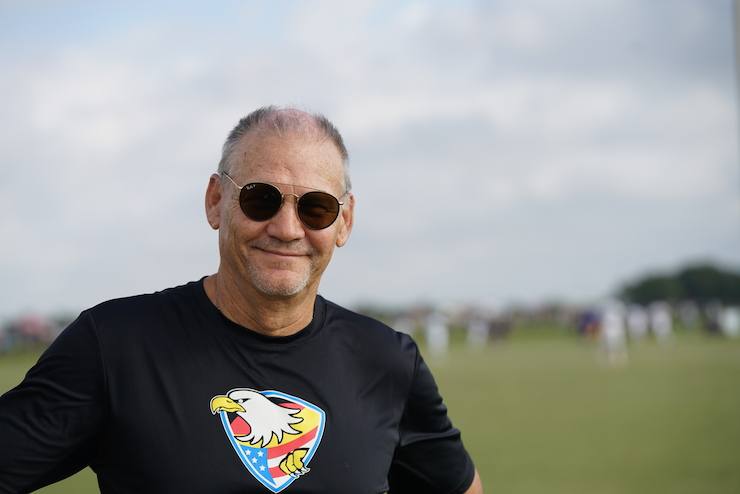
Diane Scavuzzo: What is the Talent Project you refer to as Talentprojekt?
Mark Dillon: The Talentprojekt brings high performing youth soccer players to Germany to train in a complete immersion program. In 2019, the Talentprojekt is focused on players born in 2004 and our partner club in Germany is Fortuna Düsseldorf.
The Talentprojekt is a residency program for talented youth soccer players who want to excel.
The Talentprojekt runs from August 2019 and until the end of June 2020. This is a cyclical program, so as we integrate our 2004s, we’re already starting to identify 2005s. This is a multi-year project.
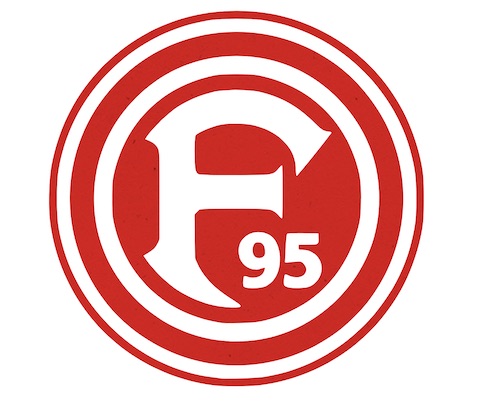 Diane Scavuzzo: How did you select Fortuna Düsseldorf to work with?
Diane Scavuzzo: How did you select Fortuna Düsseldorf to work with?
Mark Dillon: Fortuna Düsseldorf is looking for opportunities. They don’t have the financial resources of a Dortmund but they’re very interested in outside the box thinking. They’re interested in innovations, and by partnering with the Talent Project, they basically have an outsourced scouting department which they could never otherwise afford.
We’re able to scour the USA for talent and introduce players into their system that potentially could become major assets for them.
Diane Scavuzzo: That’s great. Where are the players in the Talentprojekt going to be living?
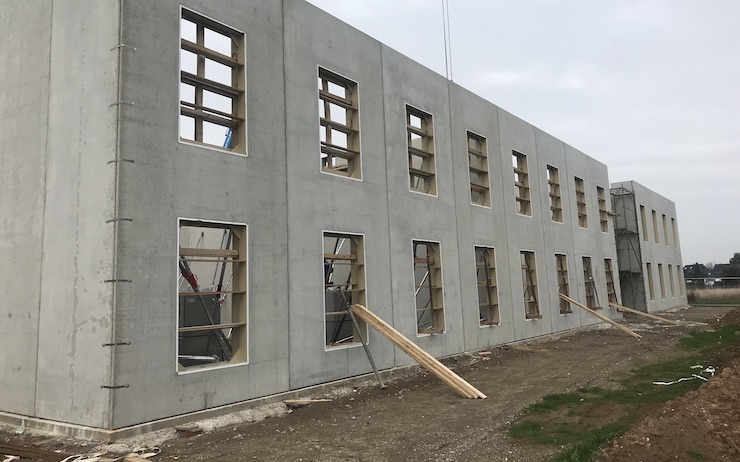
Mark Dillon: In our International Football House, a brand new residency constructed in Meerbusch, right across the Rhine River from Fortuna Düsseldorf.
We have nine apartments, with two to three boys per apartment and three additional apartments designed for supervisory staff with a common area, an industrial kitchen, and a dining area. Plus there’s a meeting room, and immediately adjacent is the physical therapy and fitness & strength training area. We also have a swimming pool.
Diane Scavuzzo: How many players are you looking for?
Mark Dillon: A maximum of 18 boys born the calendar year of 2004, and then we’ll probably shortlist 3 or 4 talented youth players just beyond that, in case of injuries.
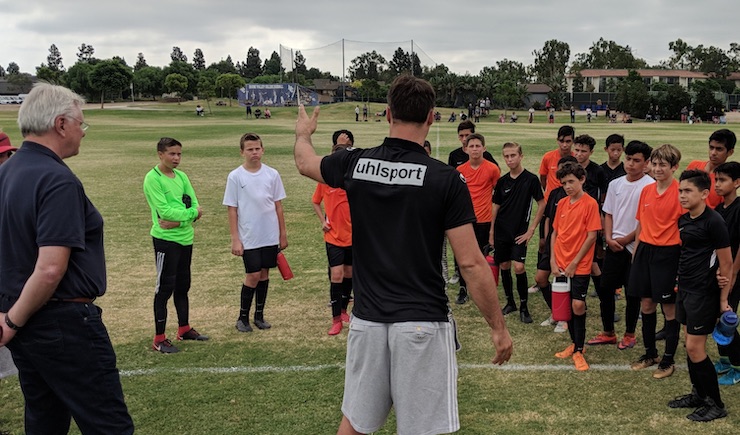
Diane Scavuzzo: Where will these players practice?
Mark Dillon: They’ll be practicing at a brand new $30 million state-of-the-art Fortuna Düsseldorf Academy Campus in the city of Dusseldorf.
Diane Scavuzzo: If you were to describe the perfect player for the Talentprojekt, what would say?
Mark Dillon: The perfect player would be a player with intelligence, with perfect technique, the ability to adapt to culture and languages, and one with the necessary good character to be successful in life.
Football development is the key to the Talentprojekt, it’s the reason we’re doing this, but it’s also about a young person’s overall development. As a parent, I know what I want for my children, and I think that would be consistent with 99 percent of the parents I talk with.
We’re developing people, not just football players.
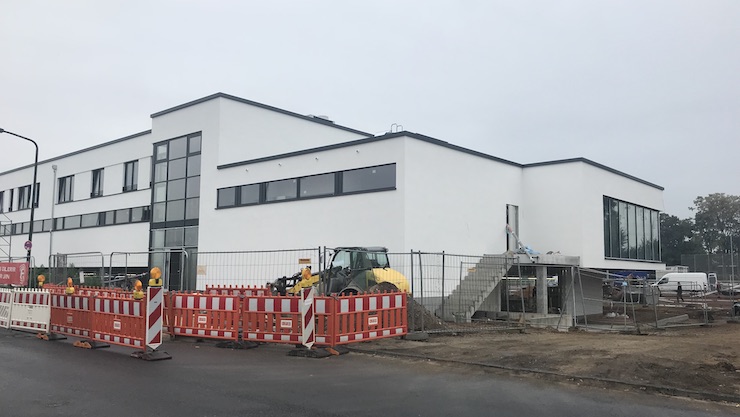
Diane Scavuzzo: What is the level of coaches that will be coaching the players?
Mark Dillon: Our team coaches will have tremendous backgrounds in German player development but we will also be looking to help develop American coach who want to pop in for a week or two, observe, and hopefully become better themselves.
Diane Scavuzzo: You will be taking these ’04 players in Germany to see professional Bundesliga games?
Mark Dillon: Absolutely. Our players will be watching professional as well as some youth Bundesliga games as well. Have you ever seen a Dortmund against Schalke U17s match? It’s unbelievable and provides a great opportunity to learn.
Diane Scavuzzo: What school will the players attend?
Mark Dillon: Players will be attending a school that is designated by the German football federation as an elite ‘football’ school, which is a school for youth soccer players. It has a full academic program but allows flexibility for the boys who are on a professional track — players can attend school but take advantage of morning training, and have planned travel for games.
This is very important — we absolutely cannot ignore is the academic side of the player development. The failure rate in professional football is so high that we have to be sure that the boys are all prepared to deal with life if football doesn’t work out for them.
Diane Scavuzzo: Is this schooling in German, or is it in English?
Mark Dillon: It’s in German — but German as a Second Language.
Diane Scavuzzo: How is an American player going to start taking classes in German?
Mark Dillon: That’s an excellent question.
First of all, we’ll be selecting all of our players by the Spring, so there will be ample time for preparation.
We have a great pool of candidates already. Selected players will participate in a German immersion program before going abroad and when they arrive in August, there will be a training camp — a full immersion program for three weeks before they attend school.
The minute that they’re capable of assimilating into the normal class, whether it’s mathematics, biology, or world affairs, they will start taking those classes in German.
I have a history in bringing American players to train in Germany and am very familiar with the process of getting these kids to adjust to being in a foreign country. The average turn around for a typical player, without a long ramp up, is about three months. With the advanced ramp up that we’re doing, we expect that they should be able to transition well within 4 to 6 weeks.
 Diane Scavuzzo: Is the Talentprojekt s immersion program new?
Diane Scavuzzo: Is the Talentprojekt s immersion program new?
Mark Dillon: This is a tested and proven program. I did a pilot project for this in 2014. We brought in 16 boys for just six weeks. I wanted to discover how they reacted to immersing in this soccer-centric environment for more than a week or ten days.
The players had to go to school each day and keep up with their classmates back home, all while they were exploring a different culture, different weather, a different environment.
The pilot program was a huge success.
The players were both technically and academically successful. I believe education is very important and the players returned to the US ahead of where they would have been academically if they had stayed home.
Diane Scavuzzo: How did you measure that?
Mark Dillon: I didn’t measure it. The schools measured it.
Diane Scavuzzo: Why do you believe your players were able to do this?
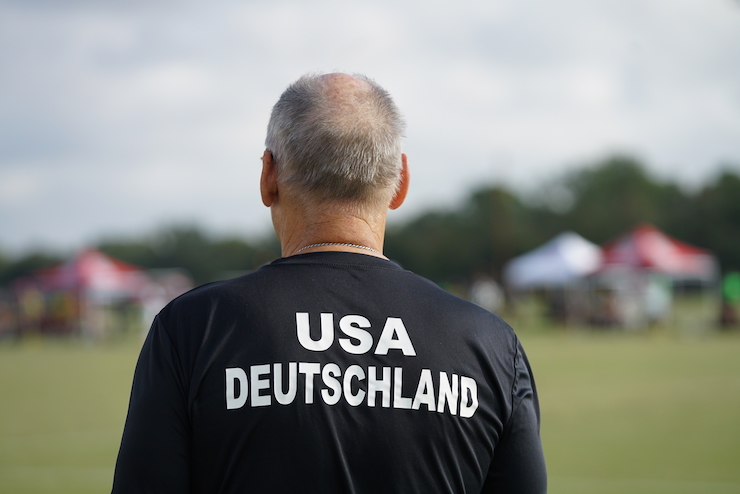
Mark Dillon: Unlike other programs, the Talentprojekt pilot had an education coordinator and this made all the difference.
We monitored the players and made sure that they got their work done. We placed them in a real learning environment where they sat down, got focused, and worked properly. They came back, and 100 percent of the boys were actually ahead of their academic schedules.
Diane Scavuzzo: Will you help the 2004s youth soccer players find clubs to play at when they return to the USA?
Mark Dillon: Yes, of course. The players in the Talentprojekt will have played against some of the best young players in Europe from Dortmund or Leverkusen. Upon returning to the states, some may join top MLS Academies. For others, there could be opportunities for each of them to stay in Germany, if they choose to.
Without a doubt, we’ll have players that will be given offers.
Players who don’t have the advantage of a European passport could still be identified by clubs that say, “We want this player. We’re not going to let him get away,” and then we can help facilitate regular visits until the player is 18 years of age and able to sign a contract.
Diane Scavuzzo: Will your players play friendlies with the top Bundesliga Academies?
Mark Dillon: Yes, and they will have opportunities for being scouted.
Our players can be invited in by these top Bundesliga clubs for training. The objective is to provide a meaningful competitive environment to complement the other elements of the program. We have no shortage of top, top level games in our area.
Diane Scavuzzo: I’m sure any parent reading this will want to know when can they see their child? This is essentially like sending them off to an elite immersion soccer and boarding school program in Germany.
Mark Dillon: Parents are always welcome and can visit any time they want. Parents are partners in this deal. All they have to do is pop in. We have a really nice hotel right down the street and there are several others in the area.
For more information on the Talentprojekt, please email Mark Dillon at md.talentprojekt@icloud.com





